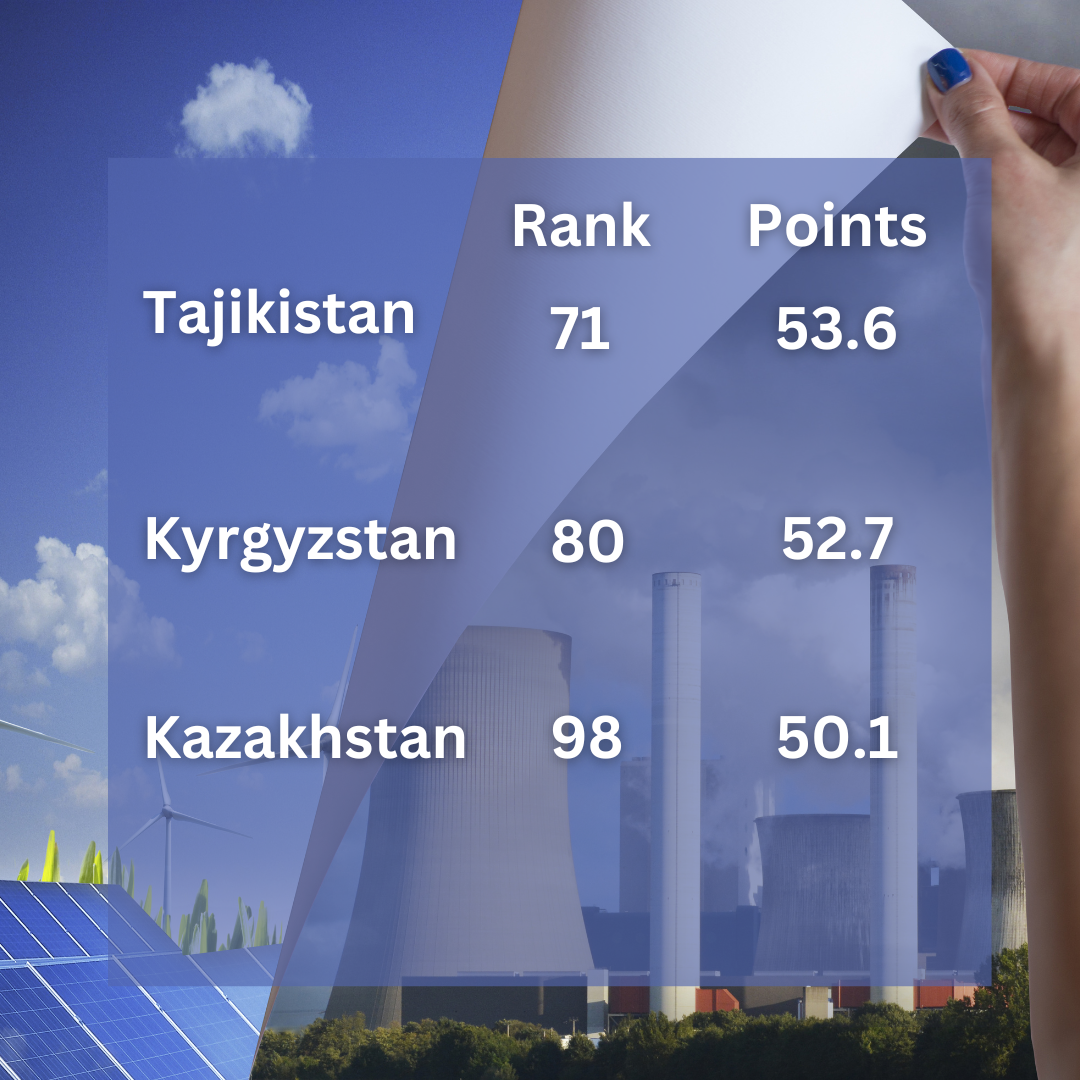Tajikistan has ranked first among Central Asian nations in the 2024 Energy Transition Index (ETI), released annually by the World Economic Forum (WEF). The country placed 71st out of 120 countries, with a score of 53.6 points.

This achievement saw Tajikistan surpass its regional neighbors, Kazakhstan (98th place, 50.1 points) and Kyrgyzstan (80th place, 52.7 points). Uzbekistan and Turkmenistan were not included in the ranking.
The Energy Transition Index evaluates global energy systems based on two main criteria: the efficiency of the energy system (60% weight) and the country’s readiness to transition to a sustainable energy model (40% weight). Key factors in the index include energy availability, sustainability, infrastructure, innovation, political support, and investment activity in the sector.
Globally, Northern European countries are the top performers. Sweden ranked first with 78.4 points, followed by Denmark with 75.2 points, and Finland with 74.5 points. The global average score was 56.5, slightly above Tajikistan’s score.
In the broader CIS and Caspian region, Azerbaijan led with 60.3 points, placing 38th in the world.
According to UN data, Central Asia is experiencing unprecedented growth in renewable energy capacity, primarily driven by solar and wind energy.
In Kazakhstan, investments in renewable energy increased by $0.8 bn as early as 2019. The country’s abundant natural resources and significant potential for large-scale wind and solar projects position it as a potential leader in the region’s transition to green energy.
Kyrgyzstan and Tajikistan rely predominantly on hydropower, with over 90% of their electricity generated from water resources. However, their potential remains underutilized. Kyrgyzstan harnesses only about 13% of its hydropower capacity, while Tajikistan uses approximately 5%.
Uzbekistan, although not included in the global ranking, is making significant strides in this direction.
For example, an agreement with ACWA Power is constructing the “Aral” wind power plant, the largest in Central Asia, with a capacity of 5 GW. Additionally, Uzbekistan’s efforts to reduce its carbon footprint earned the country $7.5 mn in carbon financing.
Comments (0)